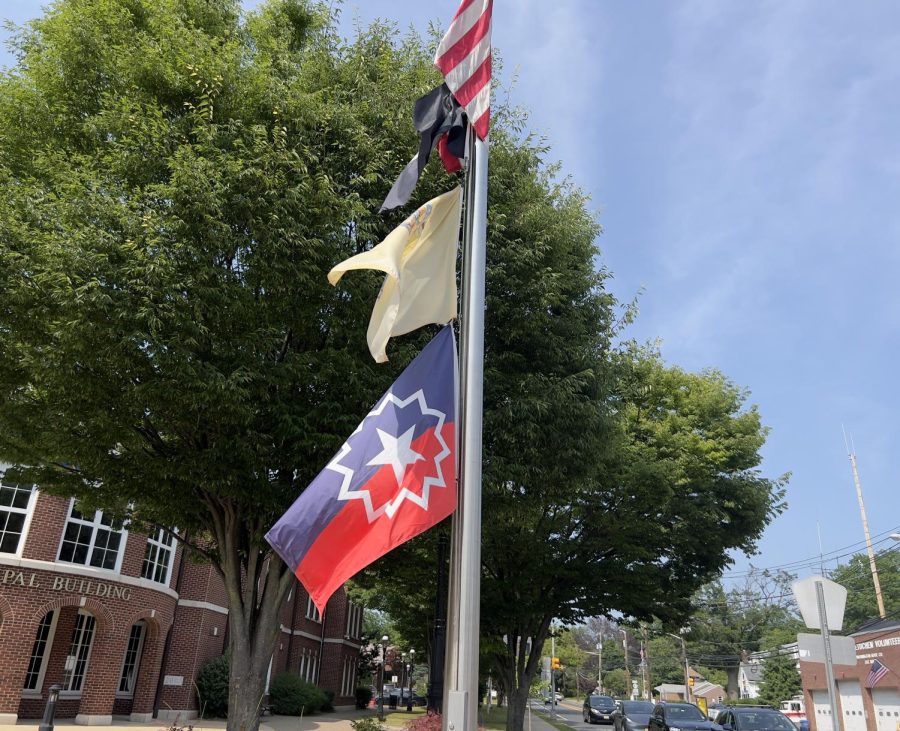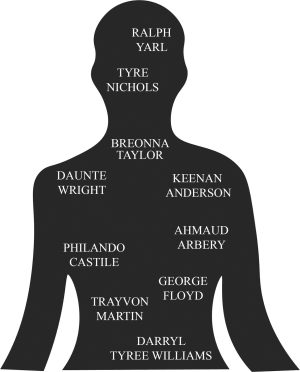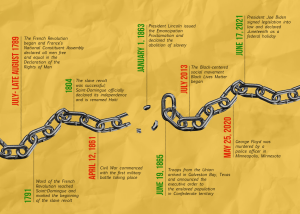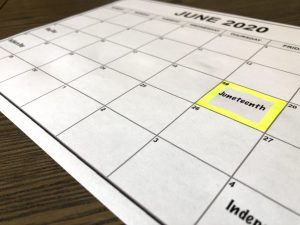Juneteenth and the Rising Recognition of the Holiday
Federal acknowledgement of the commemoration of the fall of slavery lagged nearly four decades behind legislative recognition in Texas
A small town in central New Jersey, the sixth state to recognize Juneteenth as a state holiday a month prior to New York, hung the Juneteenth flag in front of its municipal building.
June 19, 2023
Juneteenth, a portmanteau of the words “June” and “nineteenth,” is a federal holiday in the United States recognizing the official emancipation of enslaved people and those who did not learn of their freedom in West Texas on June 19, 1865. On that day, Major General Gordon Granger of the Union led soldiers to Galveston, Texas, to deliver the news that slavery was abolished and that the Civil War had ended.
According to the National Museum of African American History and Culture, Union soldiers marched across cities and plantations in Confederate states reading small copies of the Emancipation Proclamation in order to announce the fall of slavery. Although former U.S. President Abraham Lincoln had signed the proclamation on Jan. 1, 1863, the war had ended when the Confederate army surrendered at Appomattox Court House on April 9, 1865, and the 13th Amendment had passed both the Senate and House of Representatives, abolishing slavery and involuntary servitude, Union troops were unable to enforce any orders until Granger’s arrival in Galveston due to their limited presence.
The commemoration was not recognized as a federal holiday until U.S. President Joe Biden signed a bipartisan law establishing it as such. It was the first new federal holiday since Martin Luther King Jr. Day was officially recognized by the federal government in 1983 under former U.S. President Ronald Reagan.
“Juneteenth celebrates a moment of joy, but it also reminds us of the terrible road that lay ahead for millions released from bondage with only the clothes on their backs.”University President Tania Tetlow
Texas became the first state to legislatively recognize Juneteenth in 1979. Nearly 30 years later, Massachusetts followed suit in 2007, and 13 years after that, New Jersey, New York, Pennsylvania and Virginia made Juneteenth an official state holiday in 2020. Washington, Oregon and Delaware also did so in 2021 before Biden signed the bipartisan law on June 17, 2021.
The federal recognition of Juneteenth in some states followed the murder of George Floyd and the mobilization of the Black Lives Matter movement in May 2020. Injustices and violence toward marginalized communities and Black people still occur as a result of a “loophole” within the 13th Amendment, which legalizes slavery and involuntary servitude as a punishment for a crime.
Specific to New York’s legislative acknowledgement of Juneteenth, on Oct. 14, 2020, former New York Governor Andrew M. Cuomo signed into law legislation designating the commemoration as a public holiday. Cuomo had previously signed an executive order on June 17, 2020, declaring Juneteenth a holiday for employees of New York State and noting that he will propose proper legislation to solidify its recognition as a state holiday.
On the same day Cuomo issued the executive order, former University President Rev. Joseph M. McShane, S.J., announced that the university would celebrate Juneteenth as an annual paid holiday in a university-wide communication.
“If you sense that we came to this decision suddenly, you are correct: in the wake of Governor Cuomo’s executive order recognizing Juneteenth as a holiday for state employees this year, a number of you in the University community today asked about Fordham’s intentions to follow suit,” McShane said. “We heard you, and we are.”
Prior to federal recognition, Black Americans held celebrations of the holiday in Texas. Eventually, commemorations of the holiday began spreading across the country, and the pathway to national recognition was formed.
University President Tania Tetlow sent an email on June 15 reminding members of the Fordham community of the university’s closure and its honoring of the federal holiday. She also noted that the spread of celebrations surrounding Juneteenth from Texas are a reminder of the struggle that is necessary in order for the U.S. to live up to its “founding ideals of freedom and equality.”
“Juneteenth celebrates a moment of joy, but it also reminds us of the terrible road that lay ahead for millions released from bondage with only the clothes on their backs,” she said. “It reminds us of the long and unfinished struggle for true freedom.”
This year, a variety of events across New York City were held in commemoration of Juneteenth. These included Black Women in Comedy’s Laff Fest in Brooklyn, a series of celebrations across Battery Park and Seneca Village in Manhattan, a “Juneteenth in Queens” community festival at Roy Wilkins Park, and the Juneteenth Food Festival at the Weeksville Heritage Center in Crown Heights, Brooklyn, among others.
The New York Public Library (NYPL) will be hosting “Juneteenth at NYPL” events throughout June, with an upcoming event on June 20 providing visitors with the option to create buttons for either Juneteenth or Pride.
The university will be hosting a Juneteenth event on June 20 titled “Making Freedom Dreams Reality: Black Activism, Constitutional Rights and the Ongoing Struggle for Liberation.” The event, which is sponsored by the offices of the Chief Diversity Officer, Human Resources, Multicultural Affairs, the President and the Provost will be held both in-person at the Joseph M. McShane, S.J Campus Center in room 112 and virtually via Zoom.
















